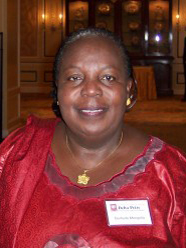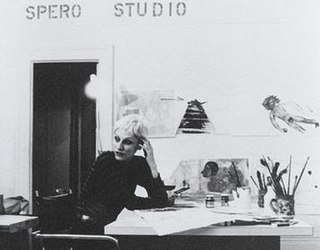A Quote by Gertrude Mongella
Women have always struggled with their men-folk for the abolition of slavery, the liberation of countries from colonialism, the dismantling of apartheid and the attainment of peace. It is now the turn of men to join women in their struggle for equality.
Related Quotes
Whenever women have insisted on absolute equality with men, they have invariably wound up with the dirty end of the stick. What they are and what they can do makes them superior to men, and their proper tactic is to demand special privileges, all the traffic will bear. They should never settle merely for equality. For women, "equality" is a disaster.
Feminism is a belief that although women and men are inherently of equal worth, most societies privilege men as a group. As a result, social movements are necessary to achieve political equality between women and men, with the understanding that gender always intersects with other social hierarchies.
Men's clothing is more pure in design. It's more simple and has no decoration. Women want that. When I started designing, I wanted to make men's clothes for women. But there were no buyers for it. Now there are. I always wonder who decided that there should be a difference in the clothes of men and women. Perhaps men decided this.
Women have full equality with men before the Lord. By nature, the roles of women differ from those of men. This knowledge has come to us with the Restoration of the gospel in the fullness of times, with an acknowledgment that women are endowed with the great responsibilities of motherhood and nurturing.
People ask me almost every day, "Why? You are successful, you have kids, you have grandchildren, so why?" Feminist women are seen as unsatisfied. But all women in the world, if they are well aware of inequality, are unsatisfied women. They don't have the same rights as men, and there is no freedom until there is equality between men and women.
Countries with more gender equality have better economic growth. Companies with more women leaders perform better. Peace agreements that include women are more durable. Parliaments with more women enact more legislation on key social issues such as health, education, anti-discrimination and child support. The evidence is clear: equality for women means progress for all.
We've demonstrated in modern countries or industrialized countries that women can do what men can do, but we have not demonstrated that men can do what women can do therefore children are still mostly raised, hugely mostly raised by women and women in industrialized modern countries end up having two jobs one outside the home and one inside the home.
Women have always been more critical of marriage than men. The great mysterious irony of it is - at least it's the stereotype - that women want to get married and men are trying to avoid it. Marriage doesn't benefit women as much as men, and it never has. And women, once they are married, become very critical of marriages in a way that men don't.
I've always sought to express a tension in form and meaning in order to achieve a veracity. I have come to the conclusion that the art world has to join us, women artists, not we join it. When women are in leadership roles and gain rewards and recognition, then perhaps 'we' (women and men) can all work together in art world actions.

































